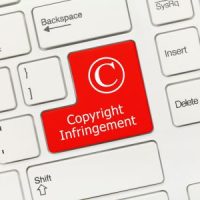How To Respond To A Cease And Desist Letter Alleging A Copyright Violation

The Copyright Act of 1976 provides the basis of U.S. federal copyright law. Under the statute, copyright holders can hold violators legally liable for infringement. If you or your business received a cease-and-desist letter alleging that you have committed a copyright violation, it is imperative that you know what to do to protect your rights and interests. Here, our Florida cease-and-desist attorney explains the key factors to know when responding to a cease-and-desist letter that alleges a copyright law violation.
Step #1: Thoroughly Review the Letter and Understand the Allegations
Simply described, a cease-and-desist letter is a formal demand requesting action by the recipient. A cease and desist could tell the receipt to take specific action or to refrain from specific conduct. In most cases, a cease-and-desist letter is a precursor to a lawsuit. Though, it is certainly possible that parties could send one without ever truly intending to take legal action.
When you receive a cease and desist letter alleging copyright infringement, it is crucial that you take the time to thoroughly review the letter and understand the scope and extent of the allegations. Only when you understand exactly what is being alleged will you be in the best position to formulate a response. If you do not understand the letter, contact an attorney for immediate help.
Step #2: Know Your Options for Responding to the Copyright Infringement Claim
You have three broad options for responding to a copyright infringement cease-and-desist letter:
- Accept the Claim: You can accept the claim. While you should typically avoid acknowledging any liability, you could take the requested action and remove the (allegedly) offending material.
- Deny the Claim: You can deny the claim and state that no copyright infringement has occurred. In some cases, parties may even file a counterclaim.
- Ignore the Claim: You could simply ignore the letter. Though, this is rarely the best course of action.
Step #3: Carefully Organize all Relevant Documents, Records, and Evidence
No matter the response you are planning to give, you should carefully organize all relevant documents, records, information, and other evidence. If the sender of the cease-and-desist decides to file a copyright infringement claim, you will want to be fully prepared.
Step #4: Consult with a Lawyer to Help Craft a Cease-and-Desist Response
A cease and desist response should always be drafted and reviewed by an experienced intellectual property attorney. Your Florida copyright infringement defense lawyer will make sure that any response is formulated in a manner that best protects your IP rights, your financial interests, and limits the risk of liability.
Schedule a Consultation with a Florida Copyright Infringement Defense Attorney
At Perkins Law – Brand Protection, our South Florida intellectual property lawyer has the skills and experience to defend copyright infringement claims. If you or your company received a cease-and-desist letter for copyright infringement, we can help. Contact us today to arrange your fully private consultation. From our Boca Raton law office, we provide copyright infringement defense services throughout South Florida, including in Broward County, Palm Beach County, and Miami-Dade County.
Source:
copyright.gov/title17/
